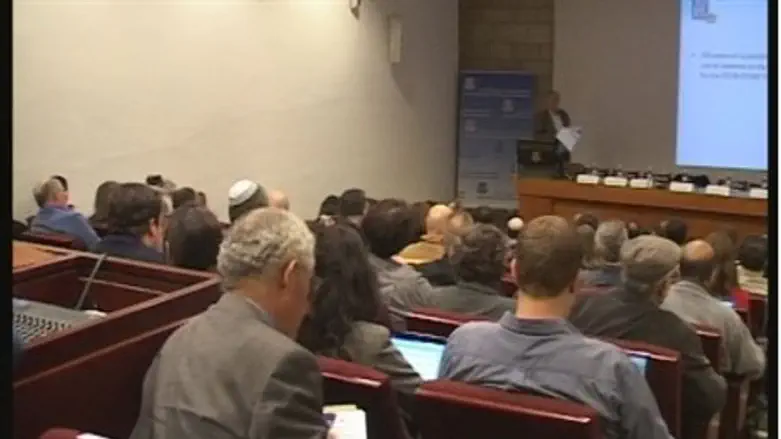
A first of its kind academic job fair for scientists and researchers, attended by returning Israeli scientists from around the world and representatives of Israeli universities and colleges in the country, was held on Sunday.
The fair was initiated by the Israel Academy of Sciences and was hosted by its president, Professor Ruth Arnon, who expressed hope that more and more researchers and scientists who are currently working abroad will be able find their place Israeli and come home.
It is estimated that about 200 returning scientists, mostly from the U.S., Canada and European countries, returned to Israel in the past four years and received assistance in finding academic work through the contact center established by the Israel Academy of Sciences in July of 2007. The purpose of the contact center is to help Israeli scientists abroad find suitable work in Israel, thus enabling their return home.
The question which is often asked is how to fight the so-called “brain drain”, which sees great Israeli minds going to study and work abroad because of better conditions.
The job fair attempts to do just that, according to Batsheva Shor, director of the contact center for Israeli researchers.
Shor told Arutz Sheva that the job fair is a direct result of a meeting last year in which Israeli researchers abroad had the opportunity to ask questions and get answers from the decision makers in the Council for Higher Education. At that meeting, she said, people asked to meet with representatives of Israeli universities in order to find out what opportunities are available to them in Israel.
“There are all kinds of issues that bother [Israeli researchers abroad],” she said. “They feel disconnected, many of them feel insecure and they really need someone who will welcome them and invite them to apply for jobs in Israel. They really need reassurance that they are wanted here.”
Dr. Yaniv Gal, currently studying for a post-doctorate in the University of Queensland, told Arutz Sheva that there is “a collection of factors that make the difference” between working abroad and working in Israel, such as the salary and the easiness of the research.
He added that “a decent job with a decent salary” would bring him back to Israel, noting that he is well aware of the fact that Israeli universities do not have the same financial means that universities in Australia do.
“I was born in Israel, I grew up in Israel, I have a special place in my heart for Israel,” Dr. Gal said when asked why he would consider coming back if the conditions are so much better in Australia. “There are a lot of emotional reasons to come back to Israel.”
Asked why people who left to study or work abroad want to come back, Shor said, “They’re Israeli. They want to live with their friends and family. The Israeli mentality is what they feel comfortable with. They want their children to be brought up in schools in Israel.”
She added that if universities and college are given more government funding that will help pay for tenure positions, that will enable the institutions to offer more attractive jobs to Israeli researchers abroad.